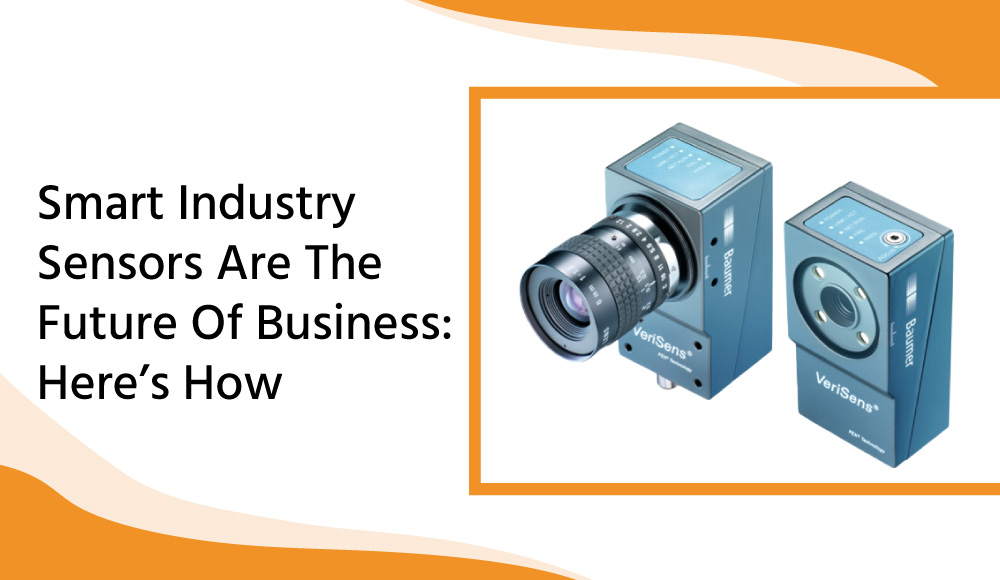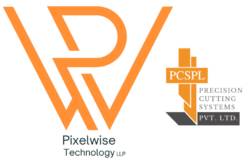
- Devashish Patwardhan
- May 30, 2024
- Blog
With Industry 4.0’s inception in 2016, technological advancement in the industrial sector is continuing to rise. Among all the advancements that have been made, smart industry sensors have created importance for themselves by providing several transitional changes in the field of industrial production methodologies.
If we talk about the transformative potential of smart sensors, then they enhance operational efficiency by providing automatic predictive maintenance, eliminating downtime, and cloud support in business production.
Here, in this blog, we will cover what are sensors and their types and advantages to get an idea about their future scope in the industrial sectors.
Enhance your business with our advanced industry sensors. Contact us today!
A] Understanding Smart Industry Sensors
Smart industrial sensors are connected via different networks and consist of three types of elements, such as sensors, communication units, and microprocessors, that help collect inputs from the physical environment and convert them to accessible data.
These advanced sensors are transforming traditional factories into modern smart factories with the incorporation of automation inspection solutions. These sensors help connect all the devices and machines into a centralised platform to enhance the manufacturing process and decrease downtime.
These smart sensors differ from traditional sensors, which only work to collect data. Smart sensors on the other hand collect and interpret data on a real-time basis. With this advanced sensor technology, automation has made significant changes in transmitting to assembly lines, intelligence systems, and overall mechanical systems into digitalisation.
B] Types Of Sensors Used In Industrial Settings
Let’s find out the different types of sensors used in industries and their importance in industrial settings.
- Pressure Sensor
This is a type of industry sensor used to measure the pressure of gases or liquids and then share a detailed report to control devices in the industry. It is an electro-mechanical device. Several industries use this sensor in everyday applications, such as controlling and monitoring manufacturing operations. The type of sensor comes with variant technologies, designs, and application methods, which come with different cost variations.
- Temperature Sensor
This sensor changes the thermal parameters of an electronic device and then converts input data into electronic form to describe temperature changes. This sensor uses a Resistance Temperature Detector or RTD technology to detect temperature changes in the system. The sensor is highly used in various sectors, such as automobiles, cooking appliances, computers, and the medical sector.
- Proximity Sensors
These sensors can detect close objects without any physical sense by emitting electromagnetic signals to record the responses or back returns. Incorporating this sensor manufacturing industry used to monitor machine vibration. These sensors check the availability of different parts or components of the manufacturing units for operations to ease manufacturing production.
- Humidity Sensors
These sensors check the water level and send digital signals to the control system, which can be used to input the stimulus. These sensors are highly used in many sectors, such as meteorology, medical devices, automobile devices, and different manufacturing units.
- Force Sensors
This advanced sensor technologytransmits different mechanical signals or forces, such as tensile or comprehensive, to provide a result in digital output format. The application of this sensor can be found in the sports industry, musical instruments, automotive sectors, and many more.
- Flow Sensors
These are electro-mechanical devices used to measure the flow of the gas or liquid and provide detailed reports to control devices. These sensors are highly used in the medical and automobile industries to measure the flow of fluids in an efficient manner and yield good results in applications.
- Light Sensor
It is a type of advanced sensor, basically a photoelectric sensor device, which is used to convert light energy or photons to what is detected in the electrons. Different variants of the sensors, such as photoresistors and transistors, all have different significances and different applications in several industries to provide significant changes in the field of light-transmitting devices.
C] Advantages Of Smart Sensors
Let’s find out some advantages of sensorsin industrial sectors.
1. Improved Cost
These smart sensors can reduce operational costs by providing real-time solutions in industrial manufacturing sectors. So, the industries do not have to spend extra money in the future as the sensors provide accurate unit cost and decrease maintenance time, and future errors or malfunctions can be reduced. Many companies train their employees to successfully implement those sensors to get maximum benefits when future complications arise.
2. Stay Competitive
The sensors help industries, whether they are automotive, medical, or other sectors. Sensors act as principal components for industrial applications to provide several accessible and significant changes to the current trends in the competitive market by providing accurate information to the manufacturers. If you are looking for such sensors, you can contact us at Pixelwise Technology Pvt. Ltdto avail of different sensor services.
3. Remote Access To Data
These industry sensorsare highly useful for providing remote access to data due to the incorporation of IoT devices or automation technology. Using these technologies, the sensors can act without any physical sense, detect objects or mechanical signals, and provide detailed reports to the controlled devices in an efficient manner.
4. Built-in Analytics And Processing
As these sensors are fully automatic, they have built-in analytics tools integrated inside them to analyse the manufacturing process in several sectors, provide detailed reports on the procedure at each step, and give them to the controlled and display devices for further processes.
Enhance your business with our advanced industry sensors. Contact us today!
Conclusion
Advanced sensors are playing a pivotal role in industry sectors by transmitting traditional industry operations into modern automated industries, which can run in several adverse situations or downtimes to provide maximum production. In the world of IoT automation devices, these sensors are creating significant changes to several industrial sectors, from medical to automotive and business operations, for a smooth and productive journey.
If you want to convert your industries into a smart manufacturing unit, incorporate smart sensors into your machinery for better production measures. Get in touchwith us today to get your hands on the latest smart sensor technologies. We value your manufacturing demand and support you to enhance your manufacturing facilities!

Devashish Patwardhan
Devashish Patwardhan is a dedicated and highly skilled manager at Pixelwise Technology LLP, where he excels in providing cutting-edge inspection and automation solutions for the printing, packaging, and pharmaceutical sectors. With over seven years of hands-on experience in industrial automation and vision inspection, Devashish continuously develops innovative, cost-effective systems that meet his clients' diverse needs. A graduate of the esteemed Pune Institute of Computer Technology & Electronic Research, he holds a degree in Electronics Engineering (2017) and is known for his strong engineering background. Devashish's passion for utilising his technical expertise and creative problem-solving skills drives him to become a top technocrat entrepreneur.





